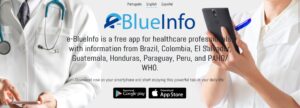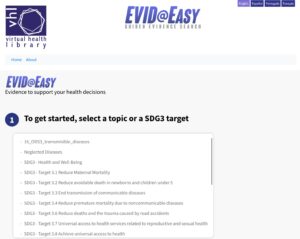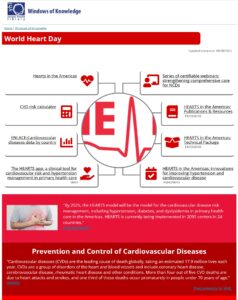The urgent need to address the interplay between infectious diseases and non-communicable diseases (NCDs), which together pose the greatest public health challenges in the Americas, was highlighted by Dr. Jarbas Barbosa, Pan American Health Organization (PAHO) Director, at an event held on the sidelines of the 80th United Nations General Assembly in 22nd of September 2025: At UNGA 80 event, PAHO Director highlights critical link between infectious diseases and NCDs.
On September 3, 2025, PAHO launched the certifiable course Better Care for Chronic Noncommunicable Diseases (NCDs), available on the Virtual Campus for Public Health (VCPH/PAHO) as part of the Initiative for Better Care for NCDs a key milestone in a country’s health system response to the Sustainable Development Agenda, with the aim of leaving no one behind.
The series consists of five free, certified webinars that address key topics such as the use of evidence-based tools for NCD care, the impact of social determinants, health promotion with a focus on equity, and the treatment of specific risk factors such as physical inactivity, poor diet, and smoking.
Coordinated by the Department of Evidence and Intelligence for Health Action, the opening webinar was moderated by Jonás Gonseth-García, senior advisor to the Better Care for NCDs Initiative, and featured opening remarks by Anselm Hennis, director of PAHO’s Department of Noncommunicable Diseases. Next, Ludovic Reveiz, head of the Science and Knowledge for Impact Unit (EIH/PAHO), presented resources and tools for evidence-informed better care for NCDs.
The session also featured an exchange of practical experiences, such as the HEARTS Initiative in the Americas with Andrés Rosende, international consultant at PAHO, and contributions from country representatives, such as Matías Villatoro from El Salvador and Xintia Ayala from Paraguay.
In his presentation, Ludovic Reveiz highlighted the role of tools and services developed in partnership with BIREME—such as BIGG-REC- PAHO/WHO GRADE Recommendations, the e-BlueInfo application, and Evid@Easy—in supporting evidence-informed health decisions and strengthening the regional response to NCDs.
According to Reveiz, “PAHO and BIREME resources strengthen evidence-based decisions and expand the regional response to NCDs. They are strategic tools for managers, health professionals, and communities that promote health for all. The technical cooperation of PAHO’s Department of Evidence and Intelligence, BIREME, and regional networks adds value by contextualizing global recommendations to local realities and expanding access to quality scientific information”.
BIGG REC, e-BlueInfo, Evid@Easy and Window of Knowledge
BIGG-REC is a PAHO/WHO GRADE recommendations portal for SDG-3, available in the Virtual Health Library (VHL). It brings together more than 4,000 clinical, public health, and policy recommendations issued by WHO and PAHO guidelines that follow the GRADE methodological approach.
The platform allows professionals and managers to find relevant guidance for their questions through advanced search functions, filters, and organization according to the PICO structure (population, interventions, comparators, and outcomes). It also allows users to explore recommendations based on the Sustainable Development Goals, in particular SDG-3 “Good Health and Well-Being”.
Its main purpose is to support contextualized decisions at the local, national, and regional levels, facilitating the adaptation of recommendations to the realities of health systems. Developed in collaboration with the Epistemonikos Foundation, BIGG-REC receives continuous updates and contributions from guideline developers and users, ensuring its ongoing relevance and expansion.
e-BlueInfo is a free application developed by BIREME in cooperation with the Ministries of Health and teaching and research institutions in countries of the Region, with support from PAHO/WHO Representative Offices. Currently available for Brazil, Colombia, El Salvador, Guatemala, Honduras, Paraguay, and Peru, it brings together locally produced information, as well as regional content from the Organization.
 The app provides guides, manuals, clinical protocols, and other essential references for healthcare services, all approved by each country’s Ministry of Health. It includes features that allow users to search for scientific evidence in the VHL using descriptors from the DeCS thesaurus and the International Classification of Diseases (ICD) created by the WHO.
The app provides guides, manuals, clinical protocols, and other essential references for healthcare services, all approved by each country’s Ministry of Health. It includes features that allow users to search for scientific evidence in the VHL using descriptors from the DeCS thesaurus and the International Classification of Diseases (ICD) created by the WHO.
Users can also store favorite documents, access consultation histories, and explore similar content available in the VHL. With these tools, e-BlueInfo seeks to further strengthen digital health literacy, expanding access to quality resources for professionals and policy makers and supporting the use of information for health action.
The BIREME ecosystem also includes Evid@Easy, a guided evidence search tool. Its purpose is to facilitate access to qualified scientific information through predefined thematic trails based on structured search strategies.
It is currently organized around SDG-3, containing a specific trail in “Target 3.4: Reduce premature deaths from NCDs.” When selecting this trail, the user is directed to VHL results, which include systematic reviews, clinical guidelines, and other documents relevant to health practice.
Unlike traditional search engines, Evid@Easy delivers validated information retrieval strategies, saving users time and ensuring greater accuracy in their searches. In this way, the tool supports professionals, managers, and public policy makers in accessing the best available evidence in a quick and contextualized manner.
 The Window of Knowledge World Heart Day brings together strategic content for the prevention and control of cardiovascular diseases, including data from the HEARTS initiative in the Americas, country indicators, technical publications, risk calculators, and support materials for both health professionals and users of health systems and services.
The Window of Knowledge World Heart Day brings together strategic content for the prevention and control of cardiovascular diseases, including data from the HEARTS initiative in the Americas, country indicators, technical publications, risk calculators, and support materials for both health professionals and users of health systems and services.
The initiative also connects users to various resources made available by PAHO on the topic, including good practice guides that reinforce the importance of primary care, the adoption of healthy habits, and the integrated management of key risk factors such as hypertension, smoking, and poor diet.
As BIREME’s own methodology for the VHL, it is a source of information that centralizes evidence and practical tools, promoting access to reliable information with the aim of supporting regional actions to promote cardiovascular health.
Technical cooperation for health sciences information
BIREME’s technical cooperation reflects PAHO’s commitment to the ongoing construction of an information ecosystem that connects actors, resources, and processes. This work strengthens collaborative networks, broadens the impact of evidence-based health policies, and promotes equitable access to knowledge and better health care for all populations in the Americas.
To learn more about PAHO’s work in this area, visit the Regional Data Portal: Initiative for Better Care for Chronic Noncommunicable Diseases, a platform that brings together regional information to support the prevention, management, treatment, and control of NCDs in primary health care. The portal provides essential data for monitoring countries’ progress and tracking results, strengthening strategies and public policies aimed at more effective and equitable responses.